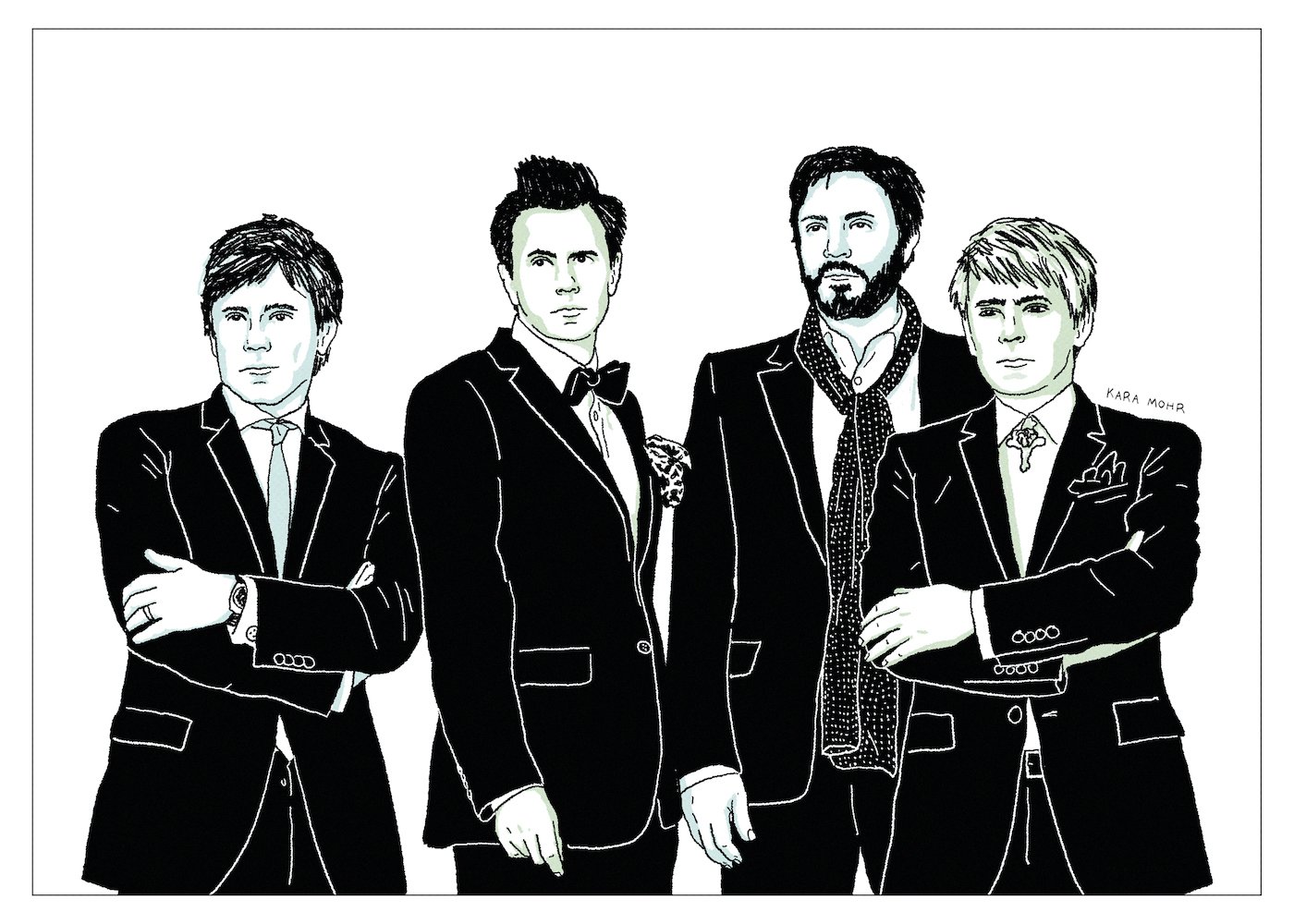
Duran Duran “All You Need Is Now”
By the time Duran Duran tired of their plight as Tiger Beat cover boys, it was too late. They would never be Chic meets Roxy Music, with a dash of The Sex Pistols. The corner of the world that they dreamed of had been claimed by New Order, The Cure and The Smiths. They were doomed to be Pop stars. And they could not tolerate it. After half a decade of fame, fortune, drink, drugs, and screaming girls, they splintered, and then buckled. And they’ve spent roughly the last forty years trying to put things back together — carefully toeing the line between looking back and looking forward. Their efforts included a forgettable covers album, a reunion of The Fab Five and a collaboration with Timbaland. But nothing worked. It increasingly seemed that Duran Duran would be remembered as one of the greatest Pop bands from the greatest moment in the history of Pop — and nothing more. Until, one day, Mark Ronson dared to wonder: “What if that moment returned?” Or rather, “What if we could recreate it? What if, thirty years later, we made the follow-up to “Rio?”

Ric Ocasek “Nexterday”
Ric Ocasek’s life after The Cars included a series of charming, lower stakes solo albums in between gigs as a “record guy.” For most of the 90s, he was a talent scout for Elektra Records and an elite producer for hire. But with Weezer’s “Blue Album,” Ocasek graduated from producer to “super-producer” — which meant he could do whatever he wanted, including making albums for Le Tigre and Brazilian Girls. It also meant that he could write poetry and paint and be the husband of a supermodel. He trimmed the New Wave mullet an inch or two, and maybe he added some lines to his face, but he still hid under the shades and bangs. He still wore oversized tops, buttoned all the way up. And he still had that odd earring dangling. In contrast, by 2005, Blondie was a nostalgia act. David Byrne was more high art than Pop. Sting made listless world music. And Duran Duran survived through the wonders of modern medicine. But Ric Ocasek, it seemed, had won. He’d done what Joey Ramone and Tom Verlaine never could -- stay weird and thrive. All of which makes his final solo album, “Nexterday,” hard to explain.

Joe Jackson “Fast Forward”
You think you know a guy. He’s a jazzy New Wave Pop star. A classically trained pianist. A peer of Elvis Costello, who made it, and Graham Parker, who almost made it. As a young man, he made a couple of hit records that have held up. And then, in the mid-80s, he took the other road. For two decades, he scored films, paid tribute to his heroes and composed music for grad students. When he returned, many years later, he appeared startlingly different — all black clothes and a powder white face and hair. In middle age, Joe Jackson’s passion was still genre-defying music, but also, and maybe more so, libertarianism.

Miles Davis “Jack Johnson”
Recorded less than six months after “Bitches Brew,” “Jack Johnson” is as much a tribute to Betty Mabry, Davis’ former wife and muse, as it is to the titular heavyweight champ. Mabry was a Free Funk pioneer, and friend of Jimi Hendrix and Sly Stone. With his increased interest in Mabry, came Miles’ increased interest in electric instruments, in general, and distortion and Funk, in particular. Experimental music and progressive politics, however, represent roughly half of the ingredients in “Jack Johnson’s” potion. The other half of the is made up of the sweat of legendary boxers and, of course, cocaine.
